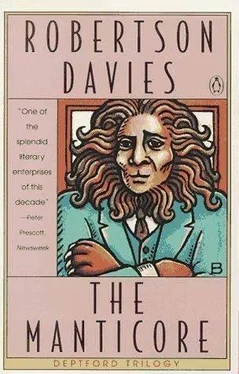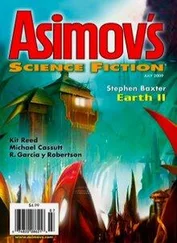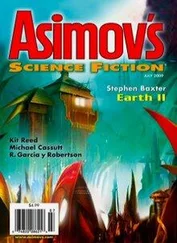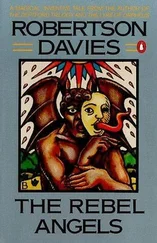Robertson Davies - The Manticore
Здесь есть возможность читать онлайн «Robertson Davies - The Manticore» весь текст электронной книги совершенно бесплатно (целиком полную версию без сокращений). В некоторых случаях можно слушать аудио, скачать через торрент в формате fb2 и присутствует краткое содержание. Жанр: Триллер, на английском языке. Описание произведения, (предисловие) а так же отзывы посетителей доступны на портале библиотеки ЛибКат.
- Название:The Manticore
- Автор:
- Жанр:
- Год:неизвестен
- ISBN:нет данных
- Рейтинг книги:3 / 5. Голосов: 1
-
Избранное:Добавить в избранное
- Отзывы:
-
Ваша оценка:
- 60
- 1
- 2
- 3
- 4
- 5
The Manticore: краткое содержание, описание и аннотация
Предлагаем к чтению аннотацию, описание, краткое содержание или предисловие (зависит от того, что написал сам автор книги «The Manticore»). Если вы не нашли необходимую информацию о книге — напишите в комментариях, мы постараемся отыскать её.
The Manticore — читать онлайн бесплатно полную книгу (весь текст) целиком
Ниже представлен текст книги, разбитый по страницам. Система сохранения места последней прочитанной страницы, позволяет с удобством читать онлайн бесплатно книгу «The Manticore», без необходимости каждый раз заново искать на чём Вы остановились. Поставьте закладку, и сможете в любой момент перейти на страницу, на которой закончили чтение.
Интервал:
Закладка:
DR. VON HALLER: Yes, I suppose he knew what was wrong with you. People often do, you know, though nothing would persuade them to bring such knowledge to the surface of their thoughts or admit what they so deeply know. He sensed you were sick for Judy. And he gave you very good advice, really.
MYSELF: But I loved Judy. I really did.
DR. VON HALLER: You loved a projection of your own Anima. You really did. But did you ever know Judy Wolff? You have told me that when you see her now, as a grown woman with a husband and family, you never speak to her. Why? Because you are protecting your boyhood dream. You don't want to meet this woman who is somebody else. When you go home you had better make an opportunity to meet Mrs. Professor Whoever-It-Is, and lay that ghost forever. It will be quite easy, I assure you. You will see her as she is now, and she will see the famous criminal lawyer. It will all be smooth as silk, and you will be delivered forever. So far as possible, lay your ghosts… But you have not answered my question: why adultery for mother but not for father?
MYSELF: Mother was weak.
DR. VON HALLER: Mother was your father's Anima-figure whom he had been so unfortunate, or so unwise, as to marry. No wonder she seemed weak, poor woman, with such a load to carry for such a man. And no wonder he turned against her, as you would probably have turned against poor Judy if she had been so unfortunate as to fall into the clutch of such a clever thinker and such a primitive feeler as you are. Oh, men revenge themselves very thoroughly on women they think have enchanted them, when really these poor devils of women are merely destined to be pretty or sing nicely or laugh at the right time.
MYSELF: Don't you think there is any element of enchantment in love, then?
DR. VON HALLER: I know perfectly well that there is, but has anybody ever said that enchantment was a basis for marriage? It will be there at the beginning, probably, but the table must be laid with more solid fare than that if starvation is to be kept at bay for sixty years.
MYSELF: You are unusually dogmatic today.
DR. VON HALLER: You have told me you like dogma… But let us get back to an unanswered question: why did you believe your mother capable of adultery but not your father?
MYSELF: Well – adultery in a woman may be a slip, a peccadillo, but in a man, you see – you see, it's an offense against property. I know it doesn't sound very pretty, but the law makes it plain and public opinion makes it plainer. A deceived husband is merely a cuckold, a figure of fun, whereas a deceived wife is someone who has sustained an injury. Don't ask me why; I simply state the fact as society and the courts see it.
DR. VON HALLER: But this Mrs. Martindale, if I understood you, had left her husband, or he had left her. So what injury could there be?
MYSELF: I am thinking of my mother: Father knew her long before Mother's death. He may have drifted away from Mother, but I can't believe he would do anything that would injure her – that might have played some part in her death. I mean, a swordsman is one thing – a sort of chivalrous concept, which may be romantic but is certainly not squalid. But an adulterer – I've seen a lot of them in court, and none of them was anything but squalid.
DR. VON HALLER: And you could not associate your father with anything you considered squalid? So: you emerged from this illness without your beloved, and without your priest, but with your father still firmly in the saddle?
MYSELF: Not even that. I still adored him, but my adoration was flawed with doubts. That was why I determined not to try to be like him, not to permit myself any thought of rivalling him but to try to find some realm where I could show that I was worthy of him.
DR. VON HALLER: My God, what a fanatic!
MYSELF: That seems a rather unprofessional outburst.
DR. VON HALLER: Not a bit. You are a fanatic. Don't you know what fanaticism is? It is overcompensation for doubt. Well: go on.
Yes, I went on, and what my life lacked in incident it made up for in intensity. I finished school, pretty well but not as well as if I had not had such a long illness, and I was ready for university. Father had always assumed I would go to the University of Toronto, but I wanted to go to Oxford, and he jumped at that. He had never been to a university himself because he was in the First World War – got the D.S.O., too – during what would have been his college years; he had wanted to get on with life and had qualified as a lawyer without taking a degree. You could still do that, then. But he had romantic ideas about universities, and Oxford appealed to him. So I went there, and because Father wanted me to be in a big college, I got into Christ Church.
People are always writing in their memoirs about what Oxford meant to them. I can't pretend the place itself meant extraordinary things to me. Of course it was pleasant, and I liked the interesting buildings; architectural critics are always knocking them, but after Toronto they made my eyes pop. They spoke of an idea of education strange to me; discomfort there was, but no meanness, no hint of edification on the cheap. And I liked the feel of a city of youth, which is what Oxford seems to be, though anybody with eyes in his head can see that it is run by old men. But my Oxford was a post-war Oxford, crammed to the walls and rapidly growing into a big industrial city. And there was much criticism of the privilege it implied, mostly from people who were sitting bang in the middle of the privilege and getting all they could out of it. Oxford was part of my plan to become a special sort of man, and I bent everything that came my way to my single purpose.
I read law, and did well at it. I was very lucky in being assigned Pargetter of Balliol as my tutor. He was a great law don, a blind man who nevertheless managed to be a famous chess-player and such a teacher as I had never known. He was relentless and exacting, which was precisely what I wanted because I was determined to be a first-class lawyer. You see, when I told Father I wanted to be a lawyer, he assumed at once that I wanted law as a preparation for business, which was what he himself had made of it. He was sure I would follow him in Alpha; indeed I don't think any other future for me seemed possible to him. I was perhaps a little bit devious because I did not tell him at once that I had other ideas. I wanted the law because I wanted to master something in which I would know where I stood and which would not be open to the whims and preconceptions of people like Louis Wolff, or Knopwood – or Father. I wanted to be a master of my own craft and I wanted a great craft. Also, I wanted to know a great deal about people, and I wanted a body of knowledge that would go as far as possible to explain people. I wanted to work in a realm that would give me some insight into the spirit that I had seen at work in Bill Unsworth.
I had no notions of being a crusader. One of the things I had arrived at during that wearisome, depleting illness was a determination to be done forever with everything that Father Knopwood stood for. Knoppy, I saw, wanted to manipulate people; he wanted to make them good, and he was sure he knew what was good. For him, God was here and Christ was now. He was prepared to accept himself and impose on others a lot of irrational notions in the interests of his special idea of goodness. He thought God was not mocked. I seemed to see God being mocked, and rewarding the mocker with splendid success, every day of my life.
I wanted to get away from the world of Louis Wolff, who now appeared to me as an extremely shrewd man whose culture was never allowed for an instant to interfere with some age-old ideas that governed him and must also govern his family.
I wanted to get away from Father and save my soul, insofar as I believed in such a thing. I suppose what I meant by my soul was my self-respect or my manhood. I loved him and feared him, but I had spied tiny chinks in his armour. He too was a manipulator and, remembering his own dictum, I did not mean to be a man who could be manipulated. I knew I would always be known as his son and that I would in some ways have to carry the weight of wealth that I had not gained myself in a society where inherited wealth always implied a stigma. But somehow, in some part of the great world, I would be David Staunton, unreachable by Knopwood or Louis Wolff, or Father, because I had outstripped them.
Читать дальшеИнтервал:
Закладка:
Похожие книги на «The Manticore»
Представляем Вашему вниманию похожие книги на «The Manticore» списком для выбора. Мы отобрали схожую по названию и смыслу литературу в надежде предоставить читателям больше вариантов отыскать новые, интересные, ещё непрочитанные произведения.
Обсуждение, отзывы о книге «The Manticore» и просто собственные мнения читателей. Оставьте ваши комментарии, напишите, что Вы думаете о произведении, его смысле или главных героях. Укажите что конкретно понравилось, а что нет, и почему Вы так считаете.












